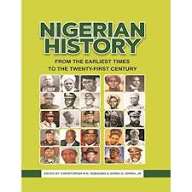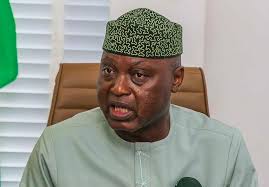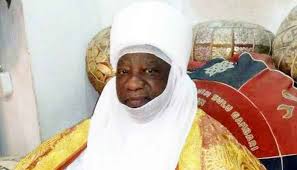FG returns History to basic school curriculum

By Samuel Ogunsona
The Federal Government of Nigeria has returned the teaching of History as a compulsory subject in the country’s basic education curriculum.
For many decades, History was edged out of school curriculum in what many considered as a deliberate step by the Northern establishment to eraze memories of atrocities committed by Fulani invaders and conquest of some indigenous territories in Nigeria.
The policy led to generations of young Nigerians who have no idea or knowledge on how the past impact on the country’s political economy.
The military Government of General Ibrahim Babangida first launched the programme of “deradicalisation” of students and teachers who rose up against his tyranny. Babangida was said to have considered the study of humanities as the pool where radical students were indoctrinated and nurtured. His most ardent critics were the students’ movement, leaderships of labour and the Academic Staff Union of Nigerian Universities, (ASUU).
The then Minister of Education Prof Jubril Aminu implemented the policy which was adopted by subsequent Nigerian leaders.
Nothing was done to reserve the trend until now.
This move aims to strengthen national identity, unity, patriotism, and responsible citizenship among young learners.
According to the Federal Ministry of Education, this reform represents a priceless gift to the nation, reconnecting children with their roots while inspiring pride, unity, and commitment to national development.
The Ministry announced on Wednesday through a statement on its official X account that Nigerian pupils will now study History continuously from Primary 1 to Junior Secondary School 3 (JSS3). Meanwhile, students in Senior Secondary School 1-3 (SSS1-3) will take the new Civic and Heritage Studies, which integrates History with Civic Education.
This innovative approach ensures learners understand the nation’s story while cultivating the values of citizenship, responsibility, and service.
Pupils in Primary 1-6 will explore Nigeria’s origins, heroes and heroines, traditional rulers and institutions, cultural heritage, political evolution, geography, environment, economy, religions, colonial administration, and post-independence governance.
Students in JSS1-3 will study Civic and Heritage Studies, covering topics such as early Nigerian civilizations, pre-colonial states, West African empires, trans-Saharan trade, European contacts, amalgamation, the independence movement, and democratic governance blended with civic values to strengthen identity and national unity.
The Ministry has released the revised curriculum and plans to collaborate with stakeholders to provide resources, retrain teachers, and strengthen monitoring and evaluation frameworks.
This move is expected to equip learners with the knowledge and values necessary to respect diversity, uphold institutions, and contribute positively to society.
History was previously removed from the basic education curriculum under the New Basic Education Curriculum introduced in 2007 and implemented in the 2009/2010 academic session.
The reasons cited for its removal included low student interest, limited job opportunities for History graduates, and a shortage of qualified teachers.
However, in 2017, the Nigerian Educational Research and Development Council announced plans to bring History back into primary and junior secondary curricula. The first stage of reintroduction began in 2022 with a teacher training initiative.
For the first time in decades, Nigerian pupils will study History continuously from Primary 1 to JSS3, while students in SSS1–3 will take the new Civic and Heritage Studies, which integrates History with Civic Education. According to the Ministry, “Primary 1–6: Pupils will learn about Nigeria’s origins, heroes, rulers, culture, politics, economy, religions, colonial rule, and post-independence governance.” .



